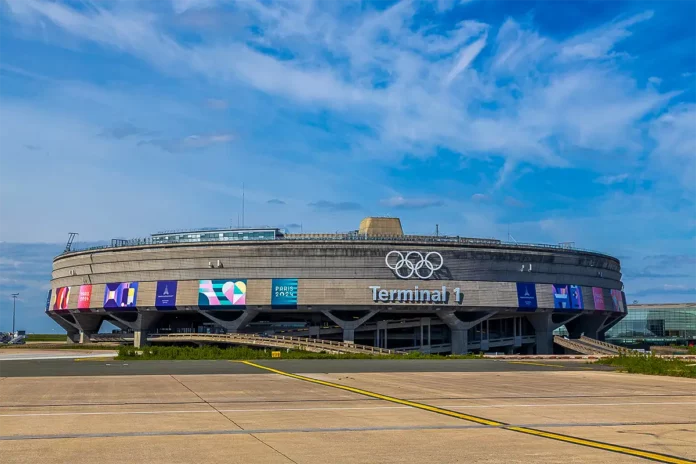Stay updated on Paris Olympics 2024 and its areal security measures on the Grand Opening Ceremony.
Introduction:
In the grandeur of Paris, as anticipation mounts for the opening ceremony of the 2024 Olympic Games, meticulous preparations are underway to ensure the safety and security of both participants and spectators. Among the array of measures being implemented, one significant step stands out: the establishment of a comprehensive no-fly zone over the Paris region. This move, orchestrated by the Paris airports operator, is slated to be enforced for a six-hour duration encompassing the commencement of the Olympic festivities on July 26.
The Scope of the No-Fly Zone
Guided by directives from both the civil aviation authority and Interior Minister Gerald Darmanin, the establishment of a no-fly zone in the Paris region is set to encompass an expansive radius spanning 150 kilometers, equivalent to approximately 93 miles, encircling the heart of the city. This formidable exclusionary boundary underscores the gravity of safeguarding airspace integrity, especially during the pivotal period surrounding the upcoming Olympics.
See also: Foden’s Masterclass Leading Manchester City to a Resounding 4-0 Win

Airlines operating within or in close proximity to this designated airspace are undergoing meticulous notification procedures, receiving explicit instructions to divert flight paths away from the restricted zone. Such proactive measures exemplify a concerted effort to prioritize safety and security, ensuring seamless coordination among stakeholders while upholding the imperative of maintaining unimpeded aerial transit throughout the region’s airspace.
Paris Olympics 2024: Ensuring Aerial Vigilance
In the stringent enforcement of the designated no-fly zone, vigilance assumes paramount importance and is upheld through a multifaceted strategy. Central to this approach is the deployment of a French military AWACS surveillance aircraft, which stands as a cornerstone in the aerial monitoring framework. Outfitted with cutting-edge radar capabilities, this specialized aircraft assumes a pivotal role in maintaining a continuous vigil over the airspace, preemptively identifying and addressing any potential airborne threats that may emerge.

This proactive surveillance is further reinforced by a suite of additional military assets strategically positioned to swiftly respond to and intercept any unauthorized incursions into the restricted airspace. Together, these coordinated efforts bolster the overall security posture, instilling confidence in the efficacy of the measures implemented to safeguard the integrity of the airspace surrounding Paris during this critical juncture.

Pioneering Trials of Electric-Powered Air Taxis
The Promise of Electric Vertical Take-Off Aircraft
The advent of electrically powered aircraft heralds a paradigm shift in the aviation landscape, marked by a concerted effort to reconcile technological innovation with environmental sustainability. Against the backdrop of Paris, a cadre of companies is at the vanguard of developing electric vertical take-off aircraft (eVTOLs). These cutting-edge platforms promise not only enhanced efficiency but also a marked reduction in carbon emissions, thereby aligning with the imperative of combatting climate change.

Addressing Concerns and Embracing Innovation
Yet, amidst the promise of innovation, apprehensions linger regarding the potential implications of introducing airborne taxis into the urban fabric of Paris. Critics caution against the envisaged cacophony and safety risks posed by these novel modes of transportation. In response, proponents emphasize the meticulous safety protocols and technological safeguards embedded within the eVTOL ecosystem, assuring the public of their commitment to mitigating any potential concerns.
In conclusion, as Paris assumes the mantle of hosting the 2024 Olympic Games, the implementation of a comprehensive no-fly zone underscores the city’s unwavering commitment to ensuring the safety and security of all stakeholders. Concurrently, the pioneering trials of electric-powered airborne taxis exemplify Paris’ indomitable spirit of innovation, propelling the city towards a sustainable and technologically enriched future.



